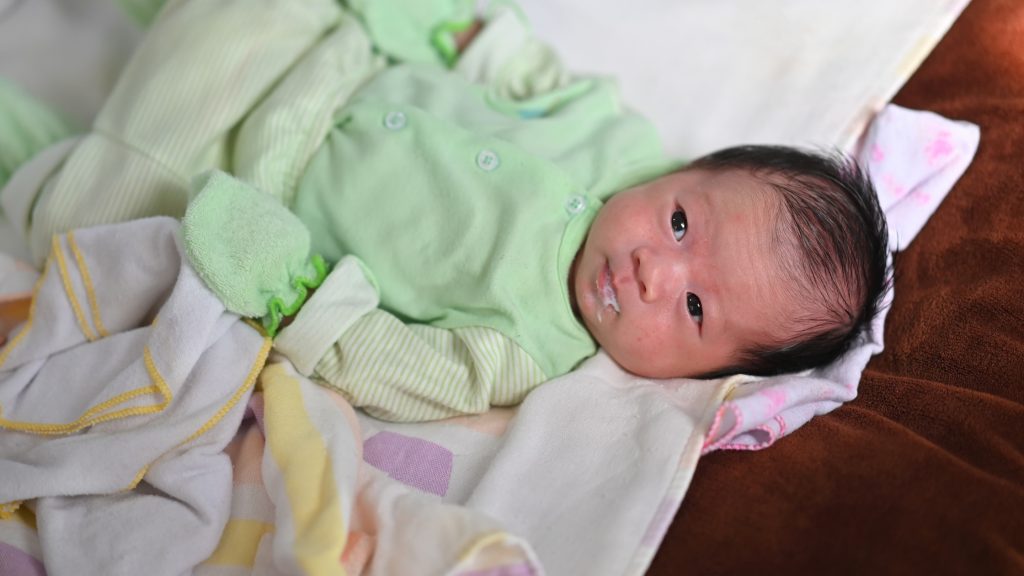Why Do Babies Spit Up?

It’s normal for babies to spit up, especially after they swallow air during feeding. When your baby’s stomach is full or they shift positions suddenly after eating, they may spit up. Spitting up is common in healthy babies, but some babies spit up more than others.
Why Do Babies Spit Up so Much?
Humans have a muscle between the esophagus and the stomach that keeps the stomach contents where they need to be, but this muscle is not yet fully developed in babies. Most babies will experience gastroesophageal reflux in their first three months of life.
Spit up is different than vomiting, too. Vomiting is a forceful flow that tends to shoot out further than spit up. On the other hand, spit up is an easy flow of your baby’s stomach contents back through their mouth. It can often accompany a burp.
While most babies stop spitting up as they reach a year old, there are some ways to reduce the amount and frequency that your baby spits up. One tip is to keep your baby upright during feeding and for 30 minutes afterwards. You can also avoid active play or putting your baby in an infant swing. Another tip is to begin feeding your baby smaller amounts with more frequency and taking the time to burp your baby as you are feeding them. Burping your baby more frequently can prevent them from swallowing too much air as they eat.
Finally, you can experiment with your diet. Your baby can have allergies, and if you are breast-feeding, your diet may be affecting your baby. Trying an elimination diet can be beneficial in reducing your baby’s spit up or gastroesophageal discomfort.
For the most part, spitting up is normal. However, if your baby isn’t gaining weight, spits up forcefully, spits up green or yellow fluid, refuses feedings, has blood in their stool, or has fewer wet diapers than normal, it can be necessary to consult your doctor.